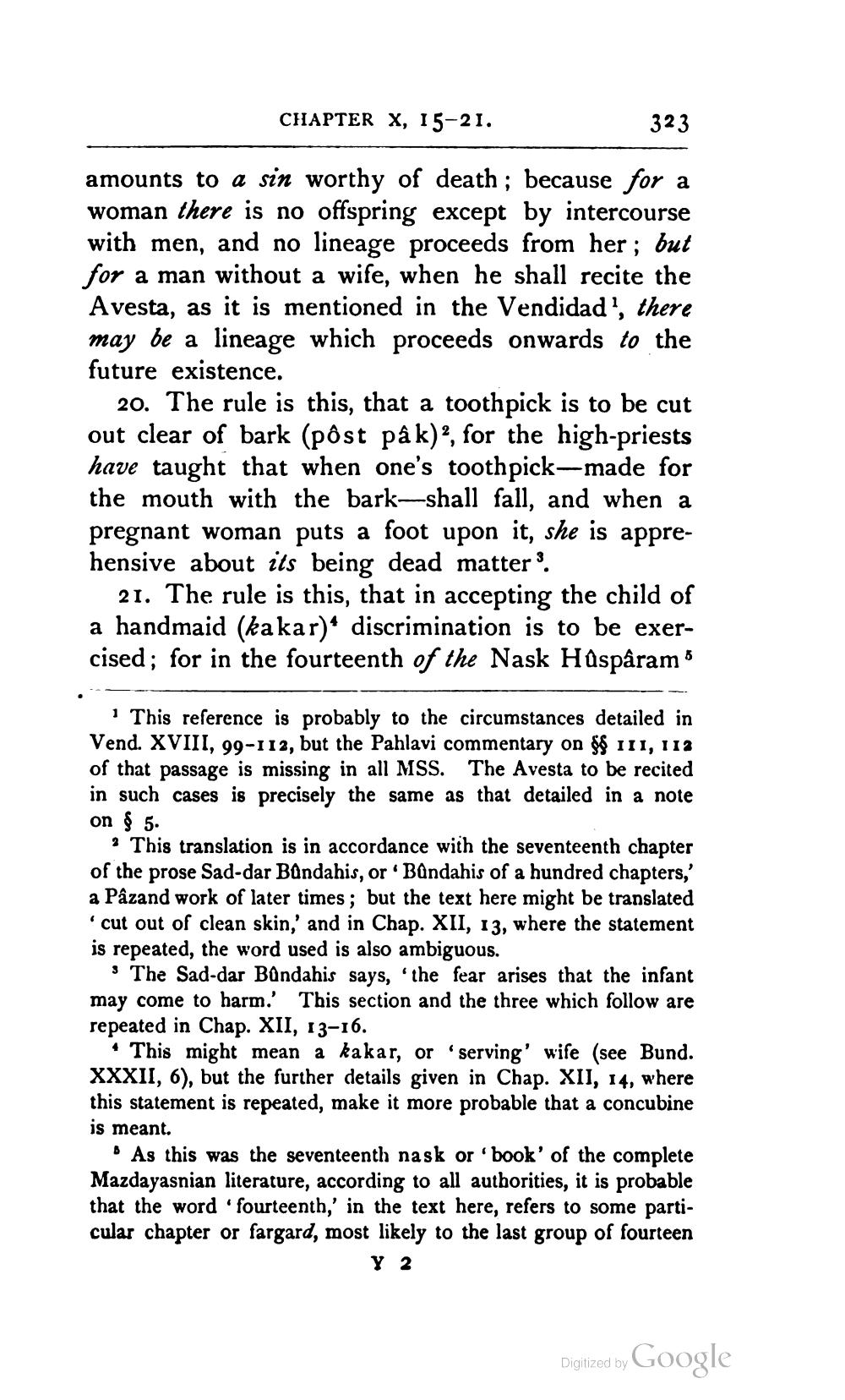________________
CHAPTER X, 15-21.
323
amounts to a sin worthy of death ; because for a woman there is no offspring except by intercourse with men, and no lineage proceeds from her ; but for a man without a wife, when he shall recite the Avesta, as it is mentioned in the Vendidad', there may be a lineage which proceeds onwards to the future existence.
20. The rule is this, that a toothpick is to be cut out clear of bark (pôst pâk)?, for the high-priests have taught that when one's toothpick-made for the mouth with the bark-shall fall, and when a pregnant woman puts a foot upon it, she is apprehensive about its being dead matter
21. The rule is this, that in accepting the child of a handmaid (kakar)* discrimination is to be exercised; for in the fourteenth of the Nask Huspâram 5
This reference is probably to the circumstances detailed in Vend. XVIII, 99-112, but the Pahlavi commentary on $ 111, 112 of that passage is missing in all MSS. The Avesta to be recited in such cases is precisely the same as that detailed in a note on $ 5.
* This translation is in accordance with the seventeenth chapter of the prose Sad-dar Bändahis, or Bandahis of a hundred chapters,' a Pazand work of later times; but the text here might be translated 'cut out of clean skin,' and in Chap. XII, 13, where the statement is repeated, the word used is also ambiguous.
The Sad-dar Bandahis says, 'the fear arises that the infant may come to harm. This section and the three which follow are repeated in Chap. XII, 13-16.
• This might mean a kakar, or serving' wife (see Bund. XXXII, 6), but the further details given in Chap. XII, 14, where this statement is repeated, make it more probable that a concubine is meant.
• As this was the seventeenth nask or 'book' of the complete Mazdayasnian literature, according to all authorities, it is probable that the word 'fourteenth,' in the text here, refers to some particular chapter or fargard, most likely to the last group of fourteen
Y 2
Digitized by Google




